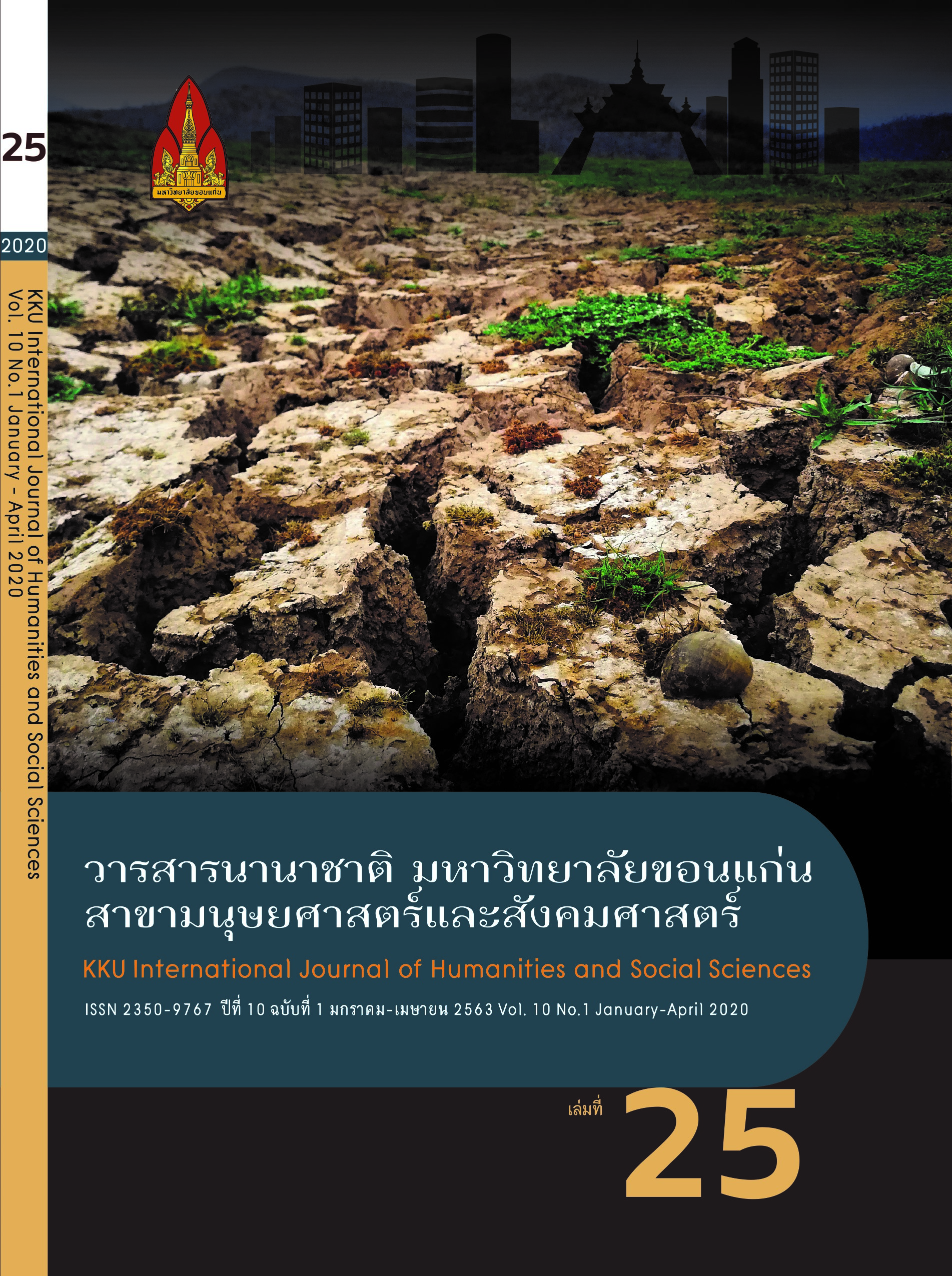Communicating “Global Warming” to the Northeastern Farmers in Semi-Urban Community
Main Article Content
Abstract
Abstract
The research studies of global warming regarding the issue in the field of Humanities and Social Sciences in Thailand have not yet been widely recognized. This paper is the study in communication with the aim to analyze the communication process of this issue arranged by government and private sectors towards the farmers in the Northeast of Thailand who are the target audiences or the main message receivers. The research framework was drawn from ecological model of the communication process proposed by Foulger (2004). The sample was a group of 300 farmers, aged between 30-60 years old, resided in semi-urban zones of Nong Bua Lamphu, Kalasin, and Srisaket provinces; the sample group represented farmers from the three different regions – the Upper Northeast, the Middle Northeast, and the Lower Northeast respectively. This research is qualitative research by using questionnaires with purposive sampling of each provinces was the main methods of data collection. The data was analyzed and presented by descriptive analysis.
The results of study showed that the communication process on global warming issue created by the content creator towards the farmers were not yet complete in accordance to the ecological model of the communication process. Many topics within the communication process were still neglected by the content creator; those included the receivers’ need of information, using language easily comprehensible and receiver-friendly, evaluation of message interpretation and translation, selecting proper medias and channels of communication which suits the receivers’ communication habits, receiving receivers’ reflections, and the incompleteness of communication process particularly the language use which plays vital role in receivers’ comprehension and reflection. Apart from using ecological model of the communication process framework to analyze communication process arranged by government sectors, the study also concluded that the sample group can get access to the information via mass media channels rather than other types of media. However, the suggestions made by the sample group included the consideration of using local media which suits the receivers’ habit and preference and using language easily comprehensible and used in daily life can also be benefits as these can have impact on receivers’ interpretation of message and the transferring of the messages to other receivers. Consequently, this paper suggested that the content creator on global warming should have investigated the receivers’ communication habits, used proper language skills, and selecting suitable media channels to fit with the needs of the receivers in order to ensure efficient communication.
Keywords: global warming, communication, farmer, Northeastern, local media


